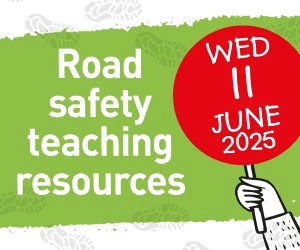Primary Times - the definitive what’s on and where to go family guide of activities and events for children of primary school age. Things to do with your kids during the school holidays including arts and craft activities, music and theatre for children, parties, competitions, days out, and family attractions along with term time drama schools, dance classes, after school clubs and sports activities. Things to do at a place near you!
Teaching revealed as a rewarding yet one of the most stressful career over the Christmas period
 Research collated by teacher recruitment service Edustaff, has revealed teaching is one of the most rewarding, yet most stressful, careers to be involved in during the Christmas period.
Research collated by teacher recruitment service Edustaff, has revealed teaching is one of the most rewarding, yet most stressful, careers to be involved in during the Christmas period.
Researchers found that although 85% of teachers loved their jobs, the stresses and workload in the classroom, especially during December, was a leading factor in why many decide to leave the profession.
To help take the pressure off our hard working teachers this festive season, EduStaff has created the “Christmas-term survival guide” designed as a stress busting go to document filled with tricks and tips to take the pressure off.
Nigel Horne, lead consultant at EduStaff has commented on the guide and the experience of teaching during the festive period. . .
"Teaching is one of the most rewarding careers available, and in December this feeling of job satisfaction is amplified as pupils embrace all the fun and festivities that come with the Christmas season.
“However, as with everything in life, things can get a bit stressful at times, and with the added pressures of things like Christmas plays and over-excited children, even the best teaching staff can find it challenging to stay on top of things. This is why we collated a list of stress-busting techniques to ensure the festive season runs smoothly for teachers, and their pupils."
Key statistics
- 83% of teachers claimed they ‘loved their job’ in a study of 2,000, in comparison to the average worker (59% are happy at work)
- Engineers, teachers and nurses found to be the happiest jobs in the world (analysis carried out by the Guardian – of 9 different surveys)
- Researchers from the University of Liverpool collected data on stress levels from 25,352 employees working in 24 different occupations. Teaching and social work are in the top three for both poor psychological and physical ill health caused by stress.
- Workload stress is by far the most important factor in making teachers consider leaving the profession (76%)
- Teachers work an average of 52 hours a week
You can take a look at the Christmas term survival guide here: http://www.edustaff.co.uk/Community/125_how-to-survive-the-christmas-term




